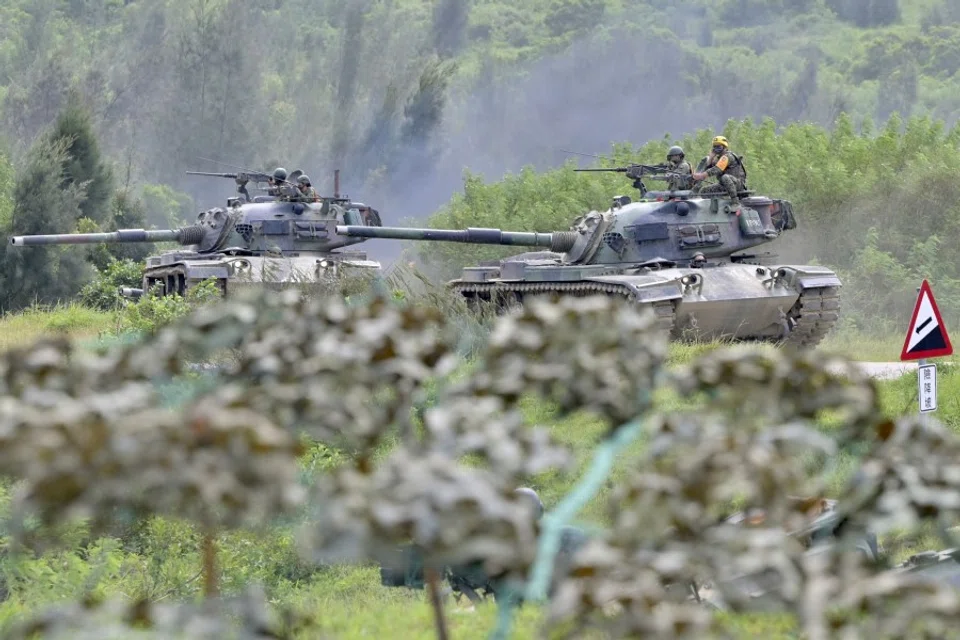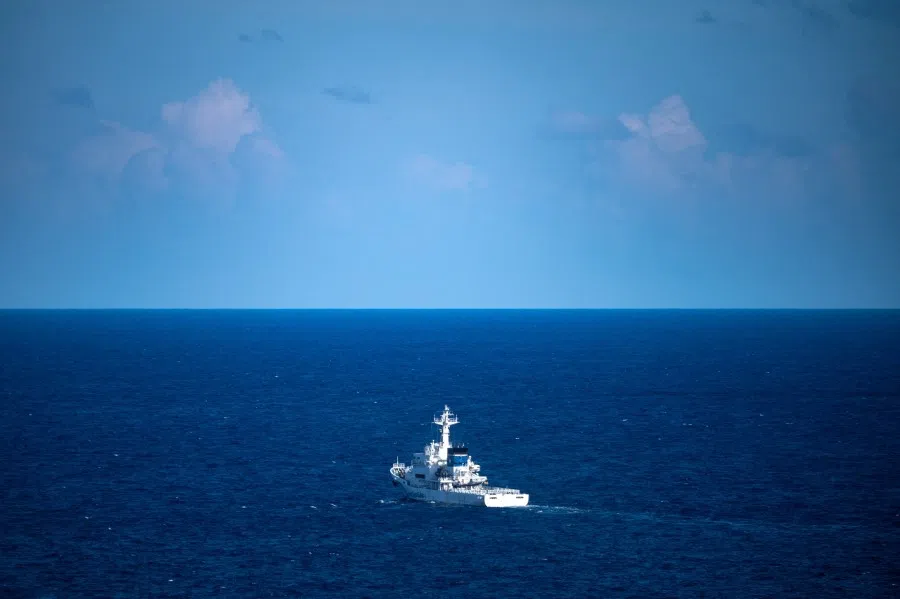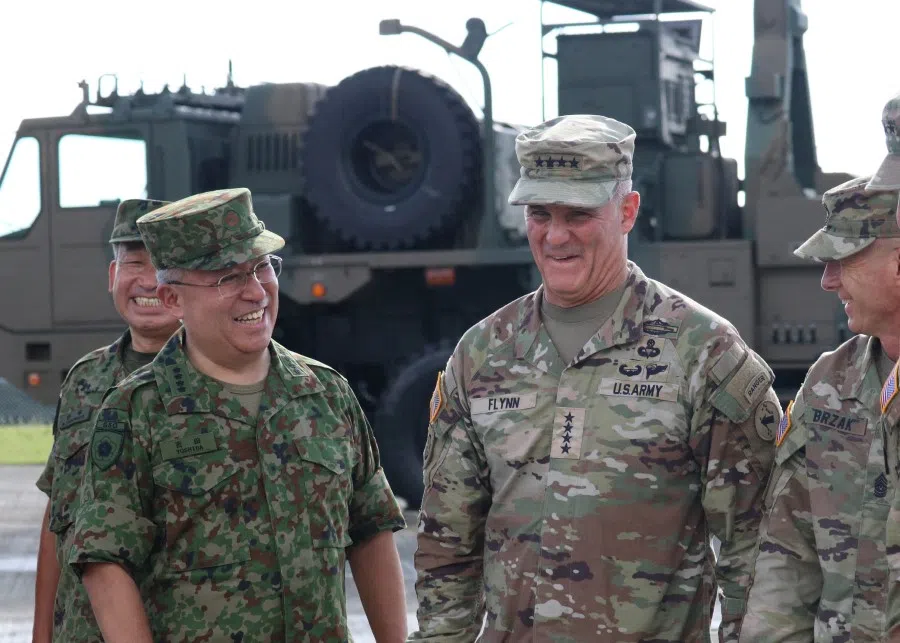Japanese academic: What Japan will do in a Taiwan emergency
How will Japan respond in a Taiwan emergency? Japanese academic Rira Momma examines the imperatives in the event that China attempts to change the current international order with military power.

It is a fact that China is the world's second largest economy. There isn't a single country that wishes for a worsening of relations with China, especially Japan. However, if China attempts to change the current international order with military power, what will be done?
If this does occur, it is highly probable that the conflict will occur in the area around China. This is why we ought to be cautious about a Taiwan emergency. There are various stages to a Taiwan Strait emergency, but if we discuss it with an invasion of the main island of Taiwan by the People's Liberation Army (PLA) in mind, we can assume the worst scenario for Japan occurring, and this requires Japan to prepare its response.
It is not known if the US government will actually deploy troops to support Taiwan in the event of a Taiwan emergency. With the Ukrainian war, Western countries, including the US, have actively offered funds and weapons and have trained Ukrainian soldiers, but there aren't any countries that acknowledge the actual deployment of troops to support Ukraine.
And if the US Army actually intervenes in a Taiwan emergency, Japan will surely handle logistics. In this case, it is assumed that China will consider Japan an "enemy" and set up cyberattacks, electromagnetic attacks, and attacks using drones and missiles.
There are reports that the British Special Air Service (SAS) and US Navy SEALS are protecting President Volodymyr Zelenskyy and aiding the Ukrainian Army, but this has not been officially confirmed. This could be interpreted as a way to avoid a direct conflict with Russia, a third country and a nuclear state, but the same could also apply to the Taiwan Strait emergency.
It cannot be denied that there is a possibility that the US Army will avoid direct combat with the PLA and offer support with only weapons and ammunition to Taiwan. Unlike Ukraine, which is physically connected to other countries, only the US Army can send the necessary weapons and ammunition for the continuation of war in Taiwan during a tense situation. If this occurs, Japan may take a position like Poland is taking now.
We must also consider that the US may try to involve Japan in some way as a country directly concerned and create a situation in which Japan cannot withdraw. If this occurs, Japan will come to support the US Army somehow. And if the US Army actually intervenes in a Taiwan emergency, Japan will surely handle logistics. In this case, it is assumed that China will consider Japan an "enemy" and set up cyberattacks, electromagnetic attacks, and attacks using drones and missiles.
In times of peace, tankers and merchant ships headed from Japan to the Indian Ocean leave the Western Pacific Ocean by passing through the Strait of Malacca, the South China Sea, and the Bashi Channel, and this forms an important sea lane for Japan. Japan will surely take action to ensure safety with this sea lane.

Whether or not Japan offers logistical support to the US Army in the event of a Taiwan emergency, it is assumed that Japan may also be directly attacked. The airspace and waters where the PLA held military exercises stemming from US House Speaker Nancy Pelosi's visit to Taiwan were set to enclose the western edge of Japan's Southwestern Islands from north to south. This shows that there is a high possibility that PLA attacks would reach Japan if an emergency for the main island of Taiwan were to break out.
These exercise areas were located offshore of landing sites in the event of a landing operation in the northern part of the main island of Taiwan, and are also waters that China would want to secure to attack the main island from the Pacific Ocean and to prevent the gathering of US Navy forces.
In times of peace, tankers and merchant ships headed from Japan to the Indian Ocean leave the western Pacific Ocean by passing through the Strait of Malacca, the South China Sea, and the Bashi Channel, and this forms an important sea lane for Japan. Japan will surely take action to ensure safety with this sea lane.
...it may even be possible that Taiwanese Air Force planes crash land at airports in the Southwestern Islands if air force bases in Taiwan are destroyed and they are unable to return to Taiwan. A plan is needed that reflects these possibilities.
And there are also more than 20,000 Japanese residents in Taiwan during times of peace. We must develop legislation for the evacuation of these Japanese residents and must also work out an evacuation plan through discussions with the Taiwanese authorities.
We must also consider that tens of thousands of Taiwan residents may evacuate to the southwestern islands, and based on the situation, it may even be possible that Taiwanese Air Force planes crash land at airports in the southwestern islands if air force bases in Taiwan are destroyed and they are unable to return to Taiwan. A plan is needed that reflects these possibilities. From this viewpoint, we should prepare with the sense of crisis that "a Taiwan emergency is a Japanese emergency", as articulated by the late Prime Minister Shinzo Abe.

Japan has only just begun its preparations for what I have written about so far. However, Japan will make China become aware that the Japan-US Alliance is strong, that Japan's will to protect its territories and the lives of its people is strong, that it is increasing its defensive abilities in the southwestern islands, and that it will be necessary for China to direct considerable military power towards Japan in the event of an invasion of the northern part of the main island of Taiwan (Taipei City).
There are more than a few among the Taiwanese public that mistakenly believe that the Japanese Self-Defense Forces will fight in Taiwan in the event of a Taiwan emergency. This is impossible under Japanese laws and regulations...
In September, General Yoshihide Yoshida, chief of staff of the Ground Self-Defense Force, and General Charles A. Flynn, commanding general, US Army Pacific (USARPAC), visited Amami-Oshima Island where anti-ship combat training for the Japan-US joint exercise Orient Shield was carried out, leaving the impression of a strengthening strategic partnership between Japan and the US by inspecting the Japan Ground Self-Defense Force Camp Amami and other sites.
There are more than a few among the Taiwanese public that mistakenly believe that the Japanese Self-Defense Forces will fight in Taiwan in the event of a Taiwan emergency. This is impossible under Japanese laws and regulations, but the deepening of Japan-US alliance relations, along with improvements to SDF equipment and enhanced training, can be expected to have the effect of preventing a Chinese invasion of Taiwan.
I want to reiterate that Japan does not wish to worsen its relationship with China on its own. However, I must also emphasise that Japan will not hold back from standing up to protect its sovereignty and its people if a Taiwan emergency affects the safety of Japan.




![[Big read] When the Arctic opens, what happens to Singapore?](https://cassette.sphdigital.com.sg/image/thinkchina/da65edebca34645c711c55e83e9877109b3c53847ebb1305573974651df1d13a)
